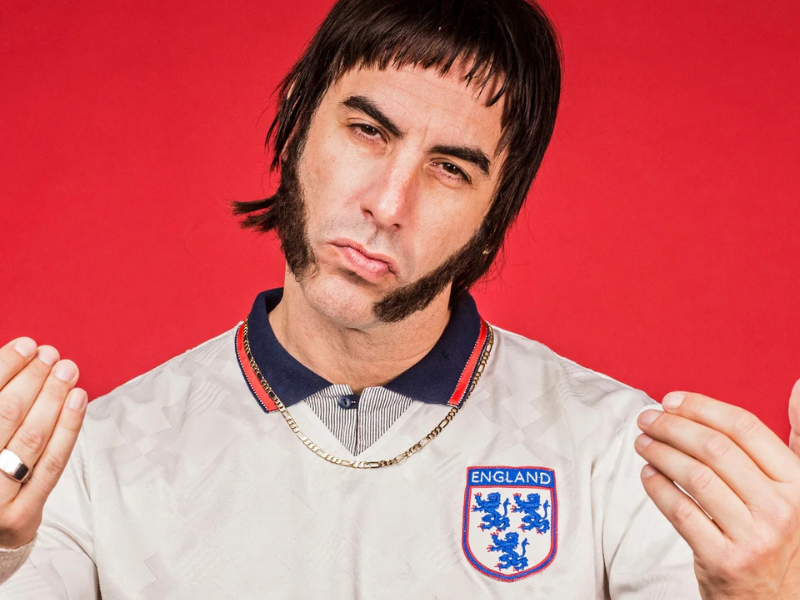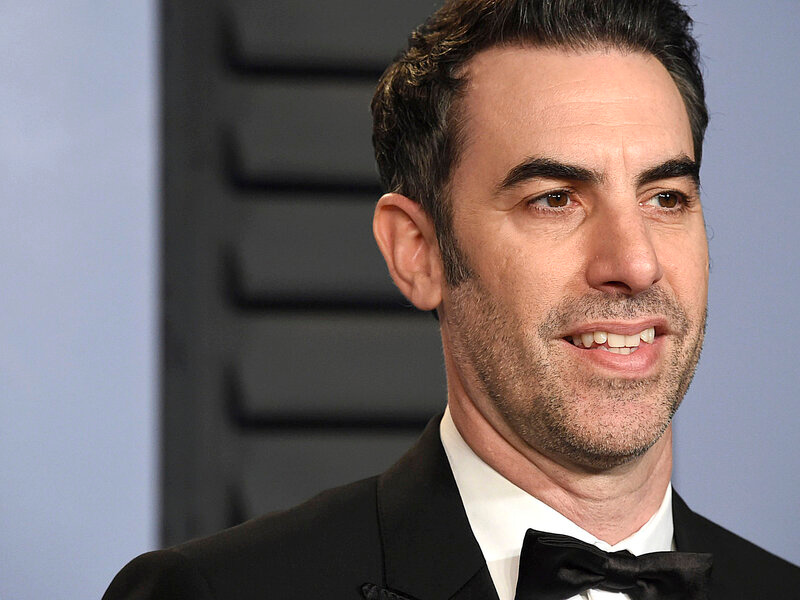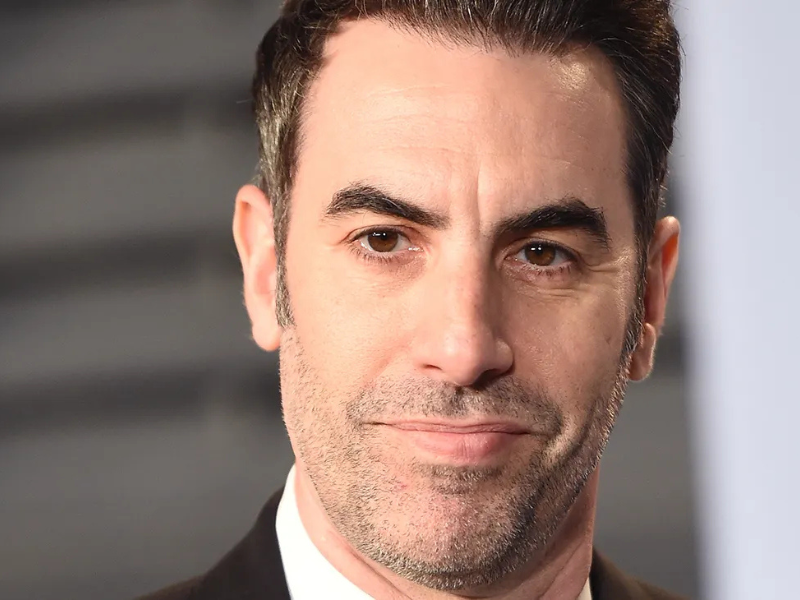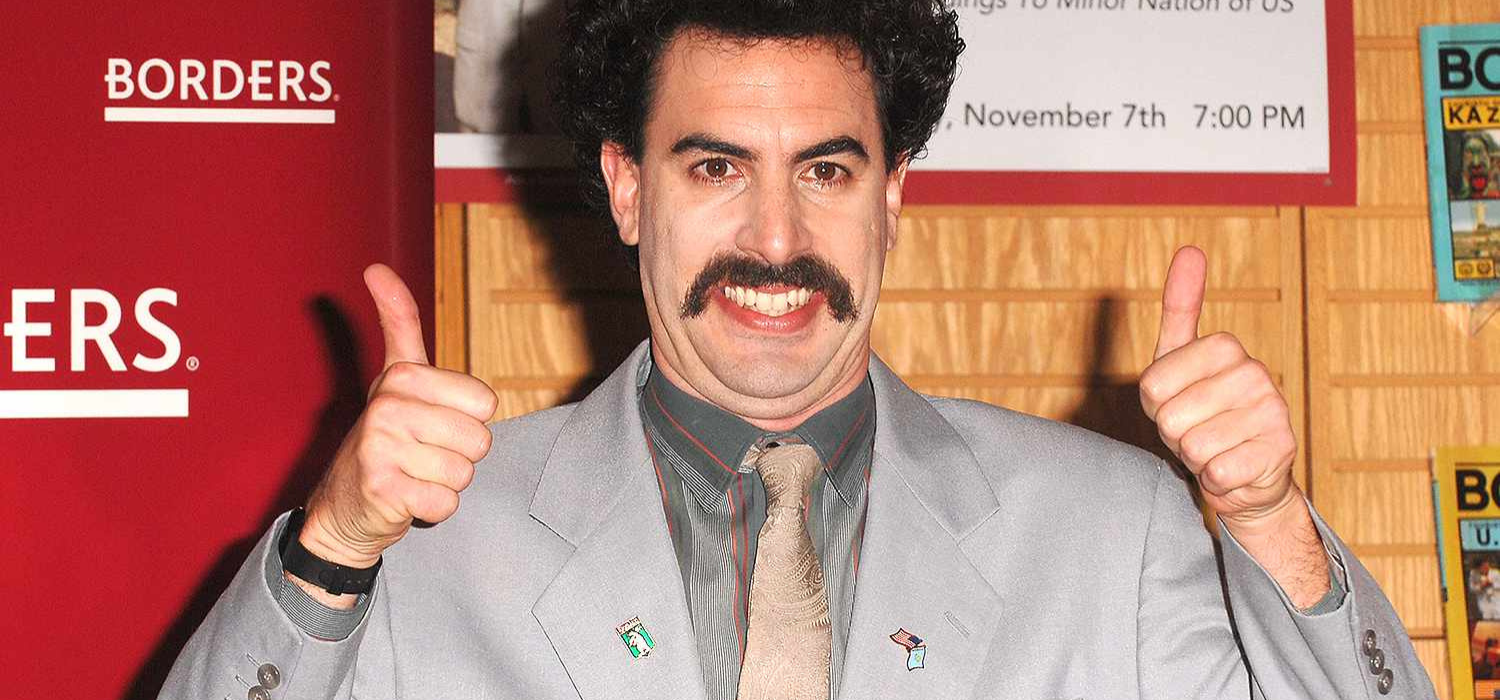The Birth of a Comedy Revolution: Monty Python’s Legacy
When talking about British comedy, one name immediately rises above the rest—Monty Python. Formed in 1969, the group was made up of John Cleese, Michael Palin, Eric Idle, Terry Jones, Graham Chapman, and Terry Gilliam. Together, they changed the way the world thought about comedy. Their TV series Monty Python’s Flying Circus was unlike anything audiences had seen before. It wasn’t just sketch comedy—it was surreal, unpredictable, and gleefully absurd.
What made Monty Python revolutionary was the refusal to stick to a traditional punchline structure. A sketch about a dead parrot didn’t end with a neat joke; instead, it spiraled into hilarity through repetition, exaggeration, and sheer madness. Their Ministry of Silly Walks sketch wasn’t just funny—it became iconic, symbolizing the group’s ability to turn the mundane into the absurd.
Their influence spread globally. Comedy in America, Europe, and even Asia took cues from their experimental format. Shows like Saturday Night Live and The Simpsons bear traces of Monty Python’s genius. More than 50 years later, their work still feels fresh. And their films—Monty Python and the Holy Grail, Life of Brian, and The Meaning of Life—are considered comedic masterpieces. The group didn’t just make people laugh; they created a movement that shaped modern comedy.
John Cleese: From Python to Fawlty Towers
Among the Python team, John Cleese became a towering figure in his own right. After Monty Python, Cleese co-created Fawlty Towers, which is often hailed as one of the greatest sitcoms in television history. With only 12 episodes produced, it remains a masterpiece of comedic writing and performance.
Cleese’s character, Basil Fawlty, is a hotel manager constantly overwhelmed by incompetent staff, demanding guests, and his own explosive temper. His physical comedy, sharp dialogue, and exasperated expressions made Basil one of television’s most memorable characters. What makes Fawlty Towers timeless is its mix of slapstick humor and biting satire, with Cleese balancing chaos and control in every episode.
Cleese’s career extended far beyond British television. His performance in A Fish Called Wanda and contributions to films like Harry Potter and the Philosopher’s Stone showcased his ability to cross into global mainstream entertainment. More importantly, Cleese carried the Python spirit forward—proving that absurdity and sharp wit could coexist in mainstream comedy.
Rowan Atkinson: The Silent Genius
While Monty Python introduced the world to absurdist humor, Rowan Atkinson brought back the art of physical comedy. Best known as Mr. Bean, Atkinson became a global star by saying almost nothing. With rubbery facial expressions, bumbling antics, and exaggerated body language, he created a character that transcended language barriers. Mr. Bean didn’t just entertain British audiences—it became a worldwide phenomenon, spawning films, animated adaptations, and international acclaim.
But Atkinson’s genius didn’t stop with Bean. He also starred in Blackadder, one of Britain’s sharpest and wittiest historical comedies. Each season took place in a different historical era, with Atkinson’s character shifting slightly in personality, but always retaining his signature dry wit and sarcasm. Supported by talents like Hugh Laurie, Stephen Fry, and Tony Robinson, Blackadder showed Atkinson’s range beyond slapstick.
The duality of Atkinson’s career—silent, universal comedy with Mr. Bean and clever, dialogue-driven humor with Blackadder—cements him as one of the greatest comedians to come out of the UK. He proved that laughter can be sparked in many ways: sometimes through clever words, and sometimes with no words at all.

The Rise of Alternative Comedy in the 1980s
By the 1980s, comedy in the UK began to evolve once again. Audiences wanted something edgier, sharper, and more politically aware. This gave rise to what was known as “alternative comedy.” Unlike the traditional stand-up and sitcoms of earlier decades, alternative comedy challenged authority, mocked politics, and pushed the boundaries of what was acceptable.
One of the defining shows of this era was The Young Ones, featuring Rik Mayall, Adrian Edmondson, Nigel Planer, and Alexei Sayle. The show was chaotic, loud, and anarchic. It broke away from the polished sitcom style, embracing randomness, slapstick, and heavy doses of satire. It was messy—but that was the point. It reflected the rebellious spirit of the times.
Rik Mayall, in particular, became a standout figure of the alternative comedy movement. His manic energy, exaggerated performances, and outrageous characters made him unforgettable. Whether in The Young Ones, Bottom, or his partnership with Adrian Edmondson, Mayall redefined what a comedic performer could be. He wasn’t about subtlety—he was about pure, explosive energy.
This new wave of comedy paved the way for future generations. It showed that comedy didn’t have to follow rules—it could be chaotic, political, and bold.
French and Saunders: Sketch Comedy Royalty
As alternative comedy was reshaping the landscape, two women were carving out their place in comedy history—Dawn French and Jennifer Saunders. Their show, French and Saunders, became legendary for its parodies, sharp wit, and playful chemistry.
Together, they poked fun at pop culture, blockbuster films, and celebrity culture, but always with a sense of charm and fun. What made them stand out was their ability to parody without cruelty. Their sketches were hilarious, but they also celebrated the very things they were mocking.
Separately, both found success as well. Dawn French starred in The Vicar of Dibley, a heartwarming sitcom where her comedic timing and warmth made the show a household favorite. Jennifer Saunders created Absolutely Fabulous (Ab Fab), which became a cultural phenomenon in the 1990s. Ab Fab’s over-the-top characters, wild storylines, and biting satire of fashion and media culture gave Saunders a permanent place in comedy history.
Billy Connolly: The Big Yin of Comedy
Scotland’s greatest comedic export, Sir Billy Connolly, is nothing short of legendary. Known affectionately as “The Big Yin,” Connolly brought a storytelling style to stand-up that was both deeply personal and universally relatable. With his Glaswegian accent, booming voice, and natural warmth, he could hold an audience in the palm of his hand for hours.
What made Connolly unique was his ability to weave humor into stories from everyday life—whether about family, childhood mischief, or travel adventures. He rarely relied on scripted punchlines. Instead, he meandered through anecdotes, sometimes veering into tangents, but always bringing it back with a moment of explosive laughter.
Connolly’s comedy often drew from working-class life, capturing the struggles, absurdities, and joys of ordinary people. His approach wasn’t about mocking or belittling—it was about celebrating the humor in human existence. Beyond stand-up, he transitioned into acting, appearing in films like Mrs. Brown, The Last Samurai, and The Hobbit series, showcasing his versatility.
Even after retiring from stand-up due to Parkinson’s disease, Connolly’s influence remains unmatched. He opened doors for comedians who wanted to tell stories rather than just deliver jokes. His authenticity and charm made him not only a comedy icon but also a cultural treasure of the United Kingdom.

Ricky Gervais: The Master of Awkward Humor
If Monty Python brought absurdity, and Billy Connolly brought warmth, Ricky Gervais brought discomfort—and made it hilarious. Gervais’s breakthrough came with The Office in 2001, a mockumentary sitcom that revolutionized television comedy. Playing the painfully cringeworthy boss David Brent, Gervais created a character that was both excruciatingly awkward and strangely sympathetic.
The genius of The Office was its realism. The awkward silences, the subtle glances at the camera, and the painfully ordinary setting made it relatable to anyone who had ever worked in an office. It didn’t rely on big jokes or slapstick—it thrived on small, uncomfortable truths about human behavior.
The show’s success spread far beyond the UK, leading to adaptations around the world—including the wildly successful U.S. version starring Steve Carell. But Gervais’s impact didn’t stop there. His later works, such as Extras, Derek, and After Life, showcased his ability to balance comedy with deep emotional resonance.
In stand-up, Gervais became known for sharp, provocative humor, often pushing boundaries and sparking debates. Whether audiences agreed or disagreed with him, they couldn’t ignore him. He remains one of the most influential comedic voices of the 21st century, known for fearlessness, wit, and an uncanny ability to make people laugh at the uncomfortable truths of life.
Sacha Baron Cohen: The Comedy Chameleon
If there’s one comedian who blurred the line between comedy and social experiment, it’s Sacha Baron Cohen. With characters like Ali G, Borat, and Bruno, Cohen created a brand of comedy that was outrageous, fearless, and often controversial.
His genius lay in his ability to use comedy as a mirror—exposing ignorance, prejudice, and hypocrisy by placing unsuspecting people in ridiculous situations. Ali G’s faux-naïve questions revealed the absurdities of politicians. Borat’s outrageous behavior exposed cultural biases. Bruno pushed the boundaries of fashion and celebrity culture to the extreme.
Cohen wasn’t just performing sketches—he was holding up a lens to society, using laughter to expose uncomfortable truths. His films, particularly Borat: Cultural Learnings of America for Make Benefit Glorious Nation of Kazakhstan, became cultural phenomena. They were shocking, crude, and often controversial, but they also sparked conversations about stereotypes, politics, and human behavior.
What made Cohen remarkable was his commitment. He fully inhabited his characters, never breaking—even when situations grew tense or dangerous. His comedy wasn’t about safe punchlines; it was about risk, courage, and satire at its boldest.
The Globalization of British Comedy
By the late 1990s and early 2000s, British comedy had become a global force. Monty Python had already paved the way, but comedians like Gervais, Izzard, Connolly, and Cohen carried it further. They weren’t just making the UK laugh—they were making the world laugh.
Streaming platforms, international tours, and the viral spread of comedy clips online made British humor more accessible than ever. Shows like The Office became worldwide hits. Characters like Mr. Bean and Borat became global icons. Stand-ups like Izzard and Connolly toured internationally, selling out arenas across continents.
What united these comedians was their ability to stay true to the uniquely British sense of humor—witty, self-deprecating, absurd—while also appealing to audiences far beyond the UK. British comedy had gone from pub stages and BBC studios to the global spotlight, shaping humor for generations to come.
Michael McIntyre: The Everyday Observational Genius
Few comedians have mastered the art of observational humor quite like Michael McIntyre. Bursting onto the UK comedy scene in the mid-2000s, McIntyre quickly became a household name with his ability to find humor in everyday situations. Whether it’s the chaos of family life, the quirks of British manners, or the universal frustrations of modern living, McIntyre turns ordinary moments into comedy gold.
His high-energy delivery, expressive body language, and knack for storytelling made him a hit not only in the UK but also internationally. Specials like Live and Laughing and Showtime catapulted him into superstardom, while Michael McIntyre’s Big Show on the BBC showcased his ability to combine stand-up with variety entertainment.
McIntyre’s strength lies in relatability. His comedy appeals to wide audiences—families, young adults, and older generations alike. In an era where comedy sometimes leans heavily on shock or controversy, McIntyre has proven that clean, accessible humor can still be wildly successful.
Graham Norton: The Master of Charm and Wit
While not primarily a stand-up, Graham Norton has played an enormous role in shaping UK comedy and entertainment. With his flamboyant personality, razor-sharp wit, and quick improvisation skills, Norton has become one of the most beloved talk show hosts in the world.
The Graham Norton Show is a global phenomenon, known for its unique format of bringing multiple celebrities together on the same sofa, encouraging unscripted conversations, hilarious anecdotes, and spontaneous moments. Norton’s comedic brilliance lies in his ability to make guests feel comfortable while still delivering biting, witty remarks.
Before dominating television, Norton built his reputation in stand-up and with his early chat shows, which were bolder and more outrageous. Over time, he honed a style that balances cheeky humor with warmth and charm. His influence extends beyond comedy—he represents the UK on international stages, from Eurovision commentary to award ceremonies, always with his trademark humor intact.
James Corden: From Gavin & Stacey to Global Stardom
James Corden’s rise reflects the globalization of UK comedy. Starting with the beloved sitcom Gavin & Stacey, which he co-created with Ruth Jones, Corden captured audiences with his ability to balance humor with heartfelt storytelling. The show became a modern classic, full of warmth, quirky characters, and memorable one-liners.
Corden’s career took a massive turn when he moved to the United States to host The Late Late Show with James Corden. Initially met with skepticism, he quickly won audiences over with his charisma and inventive segments. Carpool Karaoke became a viral sensation, attracting global stars like Adele, Paul McCartney, and Michelle Obama.
What makes Corden noteworthy is his adaptability. From British sitcoms to Hollywood films, Broadway performances, and late-night hosting, he represents the new era of comedy—one that blends traditional humor with multimedia entertainment. His success underscores how UK comedians continue to influence comedy far beyond their homeland.

Future Directions of UK Comedy
As comedy evolves, the UK remains at the forefront of innovation. Streaming platforms like Netflix and Amazon Prime have given comedians global exposure, allowing new voices to rise alongside established stars. Stand-up specials, sitcoms, panel shows, and online sketches continue to thrive, each adapting to the demands of a digital-first audience.
Emerging comedians are blending classic British humor with modern perspectives. Diverse voices, regional accents, and fresh narratives are shaping comedy for new generations. From stand-up clubs in London and Edinburgh Fringe showcases to viral social media skits, the pipeline of talent remains strong.
Technology also plays a role. Online platforms have become springboards for comedians to experiment, reach audiences, and build followings before transitioning to TV or live tours. The global appetite for British humor ensures that the tradition—born with satire, sharpened by Monty Python, and carried forward by modern masters—will continue to grow.
The Enduring Appeal of British Comedy
From surreal sketch groups like Monty Python to modern entertainers like McIntyre, Norton, and Corden, British comedy has always carried a unique flavor—intelligent, self-aware, and delightfully absurd. It thrives on contrasts: satire and silliness, awkwardness and warmth, relatability and bold experimentation.
The enduring appeal of UK comedy lies in its universality. While rooted in British culture, it speaks to audiences worldwide. It makes people laugh at the ordinary, the uncomfortable, and the extraordinary alike. Generations of comedians have carried this torch, ensuring that laughter remains one of the UK’s greatest cultural exports.


